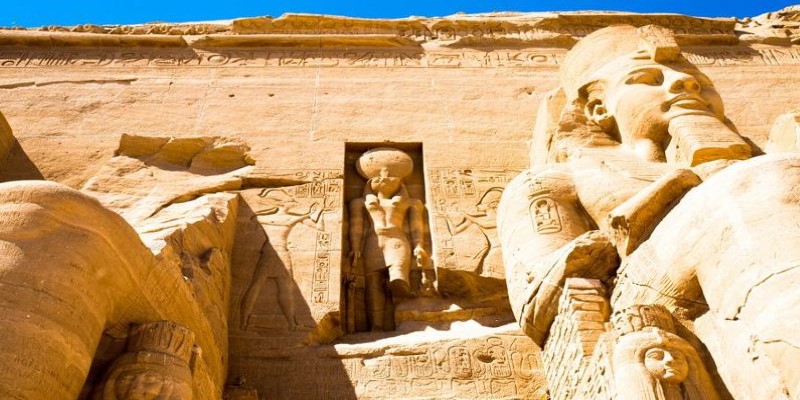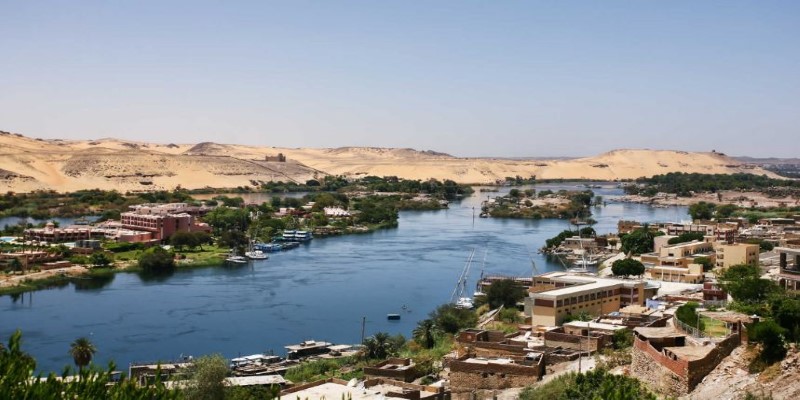Egypt, nestled in the heart of ancient civilization, shines brightly with its rich culture and enduring traditions. Its festivals, deeply ingrained in the fabric of society, serve as windows into the soul of a nation. From solemn moments of spiritual introspection to exuberant displays of communal joy, each celebration weaves a narrative of collective identity and heritage. Join us as we embark on a journey through Egypt's festive tapestry, delving into the profound significance and enduring spirit that define these cherished occasions.
Exploring the Festive Spirit of Egypt: A Look at Famous Festivals
Egypt's festivals offer a fascinating glimpse into its rich cultural tapestry. Let's delve deeper into four of the most famous celebrations, each unique in its traditions and significance.
Ramadan and Eid al-Fitr
Ramadan is the ninth month of the Islamic calendar, observed by Muslims worldwide as a month of fasting, prayer, and reflection. In Egypt, Ramadan is a time of both spiritual devotion and social gatherings.
During Ramadan, the daily fast from dawn to sunset is broken with the Iftar meal, which often turns into a festive gathering with family and friends. The streets of Egypt come alive at night with special foods, lanterns called fanoos, and decorations. It's a time of community, charity, and celebration.
Eid al-Fitr, which means "Festival of Breaking the Fast," marks the end of Ramadan. This three-day festival is one of the most significant festivals in Egypt. Families come together to enjoy large feasts, give gifts, and donate to the less fortunate. Traditional foods like kahk (sweet cookies) are enjoyed, and children often receive new clothes and money. The joyous atmosphere is felt throughout the country.
Sham El-Nessim
Sham El-Nessim is an ancient spring festival celebrated by Egyptians regardless of religion. It dates back to the time of the Pharaohs and is typically observed on the Monday following Coptic Easter.
The name Sham El-Nessim means "smelling the breeze," and its a day spent outdoors enjoying the spring weather. Families and friends gather in parks, gardens, and by the Nile River for picnics. Traditional foods include salted fish (beseech), lettuce, green onions, and colored boiled eggs.
This festival symbolizes the renewal of life and nature. It's a unique blend of ancient Egyptian traditions and modern-day celebrations, making it one of the most beloved Egyptian festivals.
Moulid El-Nabi
Moulid El-Nabi, or the Prophet's Birthday, is another important religious festival celebrated in Egypt. It celebrates the Prophet Muhammad's birth and happens on the 12th of Rabi' al-awwal, the third month of the Islamic calendar.
In Egypt, this festival is marked by religious gatherings, recitations of the Quran, and special prayers. However, it also has a festive side, with streets adorned with colorful lights and decorations. Sweets such as halawet el-moulid (candies and confections) are a central part of the celebrations. Children especially look forward to these treats.
The festival fosters a sense of community and spiritual reflection, highlighting the deep-rooted religious traditions that are a significant part of Egyptian festivals.
Abu Simbel Sun Festival

The Abu Simbel Sun Festival is a remarkable event that takes place twice a year, on February 22nd and October 22nd, at the Abu Simbel temples in southern Egypt. These dates are significant because they commemorate Pharaoh Ramses II's birth and the day he became ruler.
The temples of Abu Simbel are designed so that on these specific dates, the sun aligns to illuminate the statues of Ramses II, Ra (the sun god), and Amun (the king of the gods) while leaving Ptah (the god of darkness) in shadow. This incredible phenomenon draws many visitors to witness the alignment at dawn.
The festival includes traditional Nubian music and dance performances, creating a lively and celebratory atmosphere. It's a stunning blend of ancient Egyptian engineering and cultural celebrations, making it a unique and unforgettable experience among festivals in Egypt.
Coptic Christmas
The Coptic Orthodox Christians in Egypt celebrate Coptic Christmas on January 7th. This festival is deeply rooted in religious traditions and commemorates the birth of Jesus Christ.
In the lead-up to Christmas, Copts observe a 43-day fast known as Advent, during which they abstain from animal products. The fast is broken after the Christmas Eve service, which takes place on the night of January 6th. The service includes special prayers, hymns, and a reading of the Nativity story.
On Christmas Day, families come together to share a festive meal that often includes traditional dishes like fata (a dish made with rice, bread, and meat). The atmosphere is joyful and filled with the warmth of family gatherings. Streets and homes are decorated with lights, and children receive gifts. This celebration is a significant part of festivals in Egypt, reflecting the deep Christian heritage of the country.
Wafaa El-Nil

Wafaa El-Nil, meaning "Loyalty to the Nile," is an ancient festival celebrating the Nile River, which has been the lifeblood of Egypt for millennia. Traditionally observed in August, this festival honors the Nile's significance in providing water and sustaining life in the arid region.
Historically, Egyptians would make offerings to the Nile, seeking a bountiful flood that would ensure fertile land for agriculture. Today, the festival has evolved into a celebration of the rivers cultural and economic importance.
During Wafaa El-Nil, various activities take place along the banks of the river, including boat races, singing, dancing, and storytelling. People often participate in communal feasts and enjoy recreational activities by the water. It's a time for Egyptians to express their gratitude for the Nile and to engage in environmental awareness activities to protect this vital resource.
This festival encapsulates the historical and contemporary importance of the Nile, making it a notable event among Egyptian festivals.
Conclusion
Egypt's festivals paint a vivid portrait of its cultural identity and historical legacy. From the sacred observances of Ramadan and Moulid El-Nabi to the joyous gatherings of Eid al-Fitr and Coptic Christmas, each celebration embodies the essence of Egyptian life. Whether honoring religious traditions, embracing the renewal of nature, or paying homage to the Nile's vital role, these festivals unite communities in shared reverence and celebration. They stand as timeless reminders of Egypt's enduring spirit and cultural heritage.

Sean William Nov 03, 2023
Dining Etiquette Worldwide: Avoiding 24 Taboos

Sean William Oct 27, 2023
Paris Flea Market, Paris: How To Reach, Best Time and Tips

Juliana Daniel Dec 31, 2023
Know About Federation Square, Melbourne: How To Reach, Best Time and Tips

Sean William Aug 08, 2024
The Complete Guide to Visiting the Lake District: Best Places to Stay

Juliana Daniel Oct 06, 2023
A Guide to Explore Best Alton Towers Rides

Juliana Daniel Oct 18, 2023
Nepal Honeymoon: The Exotic Places To Visit and Best Packages

Juliana Daniel Oct 16, 2023
Everything You Need To Know About Wadi Adventure, Abu Dhabi

Sean William Dec 31, 2023